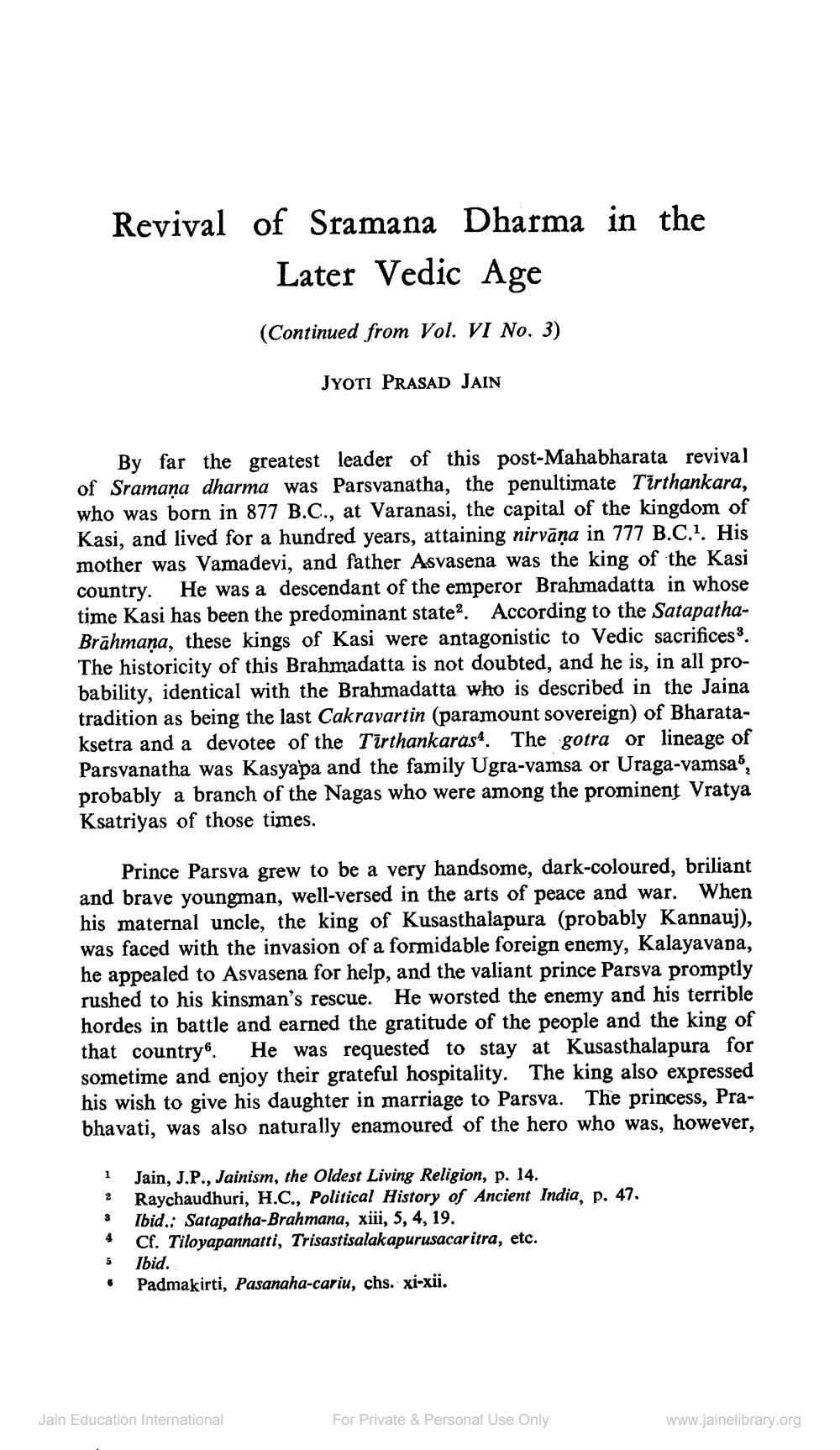________________
Revival of Sramana Dharma in the Later Vedic Age
(Continued from Vol. VI No. 3)
JYOTI PRASAD JAIN
By far the greatest leader of this post-Mahabharata revival of Sramana dharma was Parsvanatha, the penultimate Tirthankara, who was born in 877 B.C., at Varanasi, the capital of the kingdom of Kasi, and lived for a hundred years, attaining nirvana in 777 B.C.1. His mother was Vamadevi, and father Asvasena was the king of the Kasi country. He was a descendant of the emperor Brahmadatta in whose time Kasi has been the predominant state2. According to the SatapathaBrāhmaṇa, these kings of Kasi were antagonistic to Vedic sacrifices3. The historicity of this Brahmadatta is not doubted, and he is, in all probability, identical with the Brahmadatta who is described in the Jaina tradition as being the last Cakravartin (paramount sovereign) of Bharataksetra and a devotee of the Tirthankaras. The gotra or lineage of Parsvanatha was Kasyapa and the family Ugra-vamsa or Uraga-vamsa3, probably a branch of the Nagas who were among the prominent Vratya Ksatriyas of those times.
Prince Parsva grew to be a very handsome, dark-coloured, briliant When and brave youngman, well-versed in the arts of peace and war. his maternal uncle, the king of Kusasthalapura (probably Kannauj), was faced with the invasion of a formidable foreign enemy, Kalayavana, he appealed to Asvasena for help, and the valiant prince Parsva promptly rushed to his kinsman's rescue. He worsted the enemy and his terrible hordes in battle and earned the gratitude of the people and the king of that country". He was requested to stay at Kusasthalapura for sometime and enjoy their grateful hospitality. The king also expressed his wish to give his daughter in marriage to Parsva. The princess, Prabhavati, was also naturally enamoured of the hero who was, however,
1 Jain, J.P., Jainism, the Oldest Living Religion, p. 14. Raychaudhuri, H.C., Political History of Ancient India, p. 47.
2
3 Ibid.; Satapatha-Brahmana, xiii, 5, 4, 19.
4 Cf. Tiloyapannatti, Trisastisalakapurusacaritra, etc.
5 Ibid.
6
Padmakirti, Pasanaha-cariu, chs. xi-xii.
Jain Education International
For Private & Personal Use Only
www.jainelibrary.org




